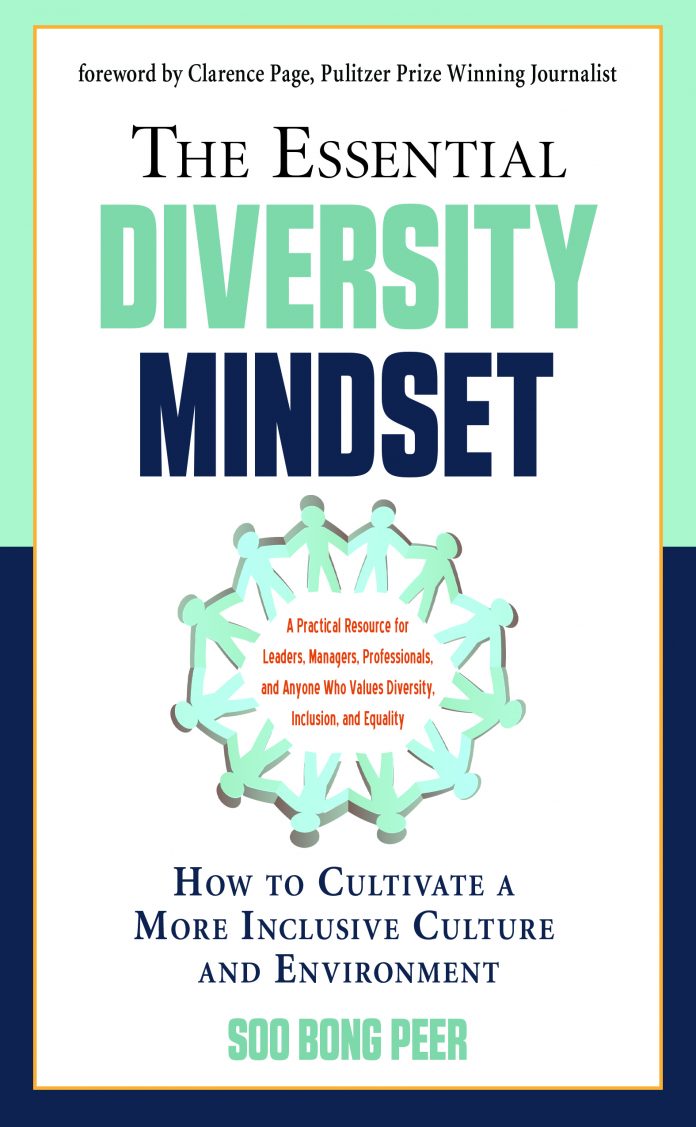
In a world where we are challenged by racial tensions, polarizing politics, and multiculturalism, we are hungry for great leaders. According to a Gallup poll conducted in July 2020, 77 percent of Americans disapproved of the US Congress. In the past ten years (July 2010–July 2020), Congress’s job disapproval rate ranged between 65 percent and 86 percent. When leaders do not garner respect, they do not inspire. When leaders do not inspire, we all suffer.
In our time of sharply heightened public concern over race relations, it is crucial to have leadership that can help cultivate an authentic path to diversity. Our lives are to a great extent affected by how our leaders think and what they do. A country’s unity or divide rides on the mindsets and actions of its leaders, whether they be in government, business, or academics. They exert a pivotal role in our diversity journey toward healing and harmony as they set policies and directions that touch our daily lives.
They shape the tone for their country and organizations and influence the climate of the community they lead through their intrinsic energy and presence. It wouldn’t be possible to advance pervasive diversity without leaders who are committed to making bold (not necessarily popular) changes. Leaders have the ability to unify and advance the health of society or the workplace as well as the power to corrode the culture and people within it. Sadly, we too often see leaders who are more concerned with winning or being re-elected that they’ll trade “doing the right thing” for “winning at all costs.” We see this not only in politics but in all fields. Most people will do anything to keep their jobs, no matter the cost.
Leaders are bestowed with the privilege to inspire others and implement reforms that ultimately make real changes in people’s lives. Great leaders bring out their true selves through their actions and behaviors that touch and move people. While a leader is only one person in an ocean of individuals, for better or worse, leaders have the power to influence mindsets to a greater degree than any other force. No one can change our mind other than ourselves, but that’s not to say we cannot be influenced.
The influencing effect leaders have on individuals can foster a multiplying effect that spreads to that person’s loved ones, family, friends, and society. With such solemn privilege and responsibility given to them, leaders are accountable to examine the basis of their motivations and agendas and to reflect on the potential outcomes they may strive toward. Their ambitions and efforts can lead society toward two divergent paths: pushing for divides and anger or promoting healing and unity.
Leadership is given; great leadership must be earned. Sadly, many leaders throughout history have abused their privilege, usurped by the greed of power. Unfortunately, greed and power are enduring human vices that will never go away. Trying to remove the world of greed would be as difficult as removing the world of happiness. Nonetheless, integrity and altruism are also inherent human characteristics. We see both sides with leaders, sometimes both within the same person. Could there be a leader who can completely transcend the negative side of being human? That’s doubtful. To me, it’s not all or none, it’s about what degree, to what cost, and to what benefit.
A Journey from Ordinary to Extraordinary
Growing up, I was fortunate to be exposed to the government and business leaders with whom my father interacted. The most profound lesson I learned from observing these men and women was that leaders are everyday people, just like you and me, who possess the same human virtues and fallacies we all share. Through deep commitment and hard work, these ordinary people may become extraordinary.
The top priority for any leader is to produce results; regardless of industry or profession, this is the one unifying and non-negotiable responsibility that all leaders share. When leaders don’t generate results, they are unable to gain credibility, respect, or power. Many leaders I experienced, because of time and emotional pressure exerted by their strict mandates, often forewent or ignored the importance of people and humanity. This is an unfortunate oversight that often separates competent and great leaders.
Good leaders produce results. Extraordinary leaders are able to produce results and cultivate a human connection that inspires, nourishes, and empowers all those who follow. There is nothing more miserable than following a leader we do not respect or believe in.
Regardless of policy or work ethic, the ability to make genuine connections that touch people is by far the most difficult feat for any leader to accomplish. When leaders connect with genuine hearts, regardless of title, status, or wealth, they create a deep bond and a mutually shared energy that transcends hierarchy and human differences. Great leaders tap into this space and have the power to influence the way others think and feel. When we listen to a leader speak passionately about his or her beliefs, we can feel it in our hearts and soul. When someone is manipulative or disingenuous, we can tell the difference. A leader’s ability to connect cannot be manufactured; it must come from within. Through their connecting energy, a force no words can truly describe, great leaders, move those who follow and can change the people around them.
From heads of government to CEOs, and from military generals to film directors, having empathy and the ability to connect with others is what truly makes a great leader. Great leaders possess the ability to foster unity and pervasive diversity. Leaders are not just defined by their popularity or visibility. We cannot forget the countless other great leaders in the world who may not make a Fortune or Forbes list or don’t yet have a book written about them. These are the leaders who make a profound impact on individuals’ lives every day on a smaller but no less significant scale. They foster human connection and build steps toward pervasive diversity. I am talking about parents, teachers, professors, doctors, nurses, caretakers, therapists, coaches, and everyone in between who makes lasting impacts that change individuals every day.
It is our responsibility to identify and support leaders, whether in the public or private sectors, who we believe will take on the challenges of making bold changes that will put our society on the path toward pervasive diversity and unity. On the surface, many great leaders may not appear to possess all the bells and whistles, yet underneath, they carry the qualities that withstand the temptations of power and greed. They put their people and society before their personal agendas and gains. They inspire us. They help us change and grow. We are eager to find these kinds of leaders. How can we spot them?



